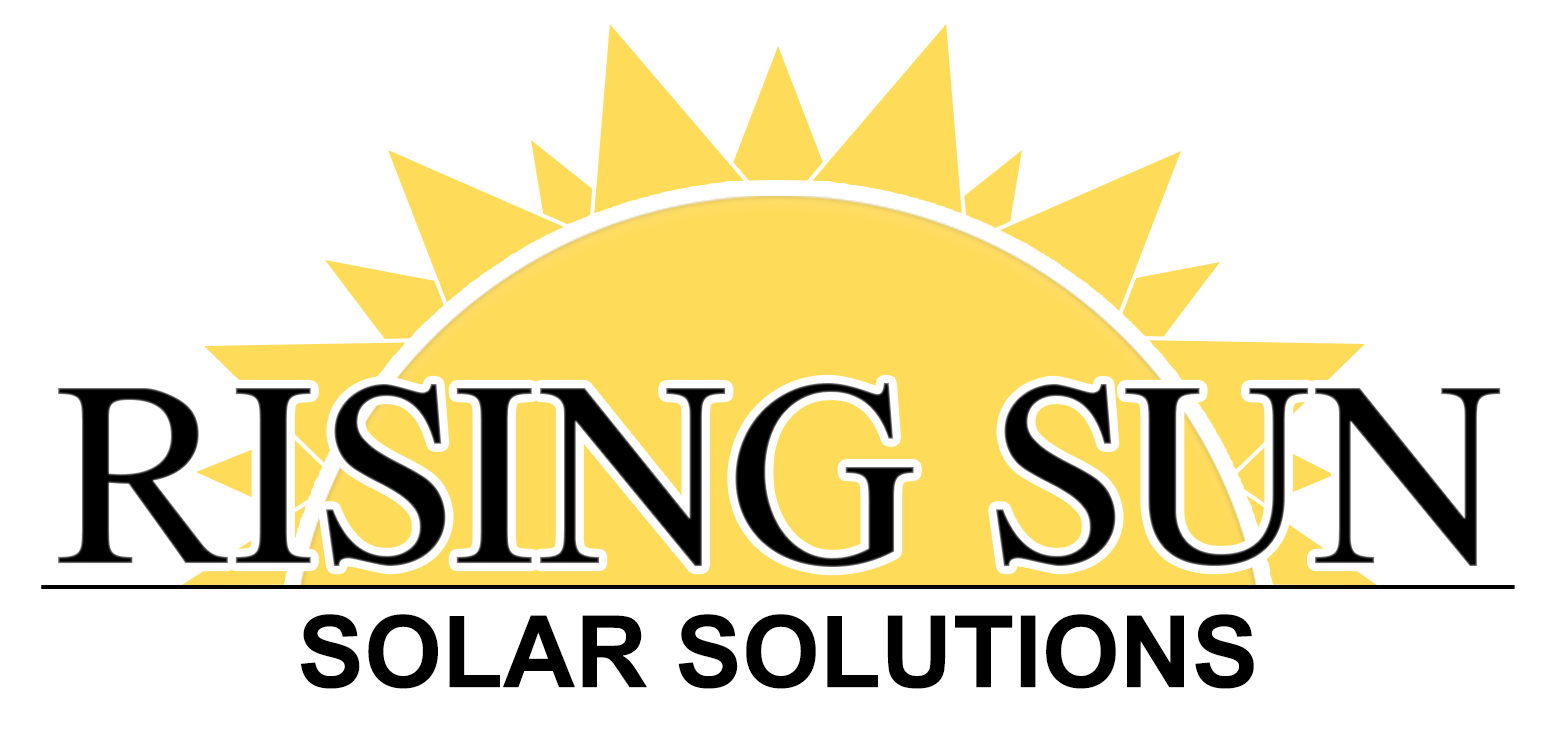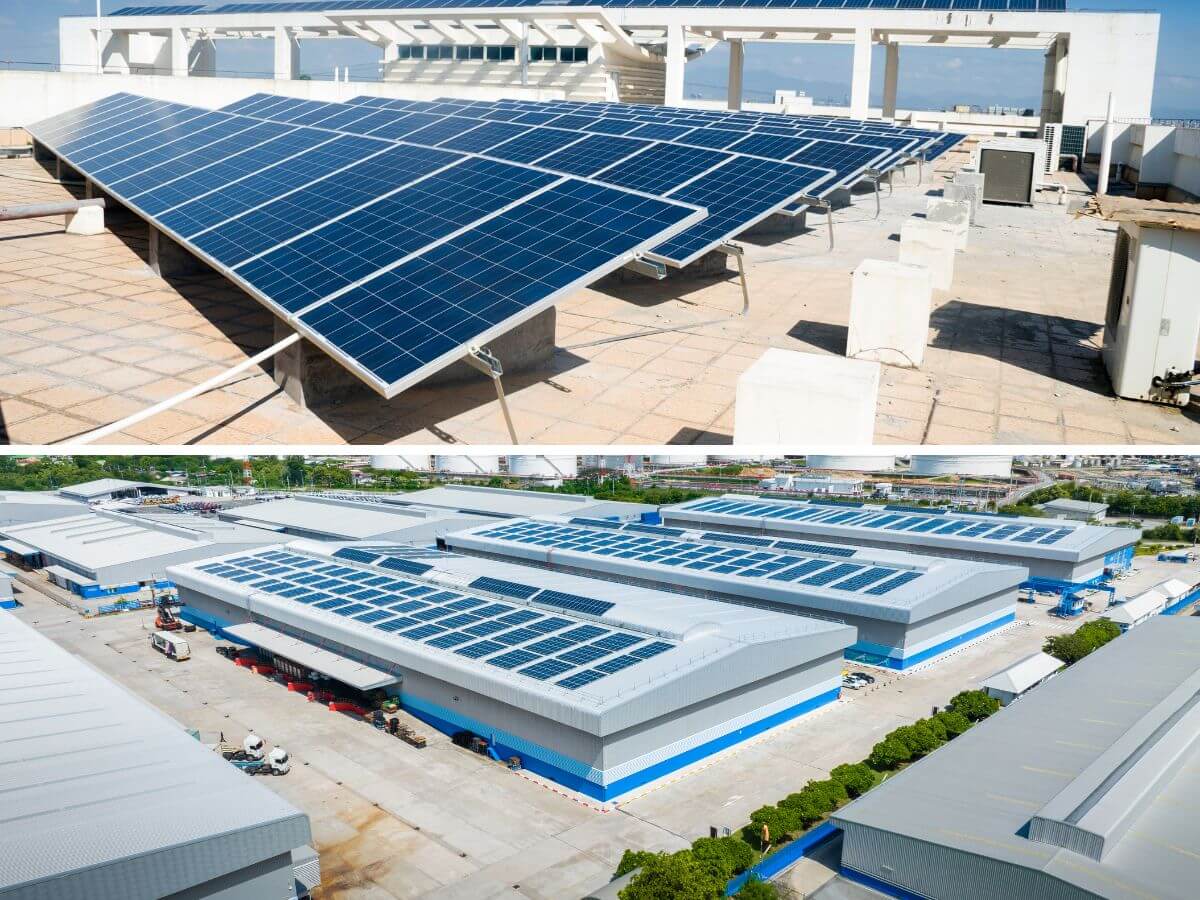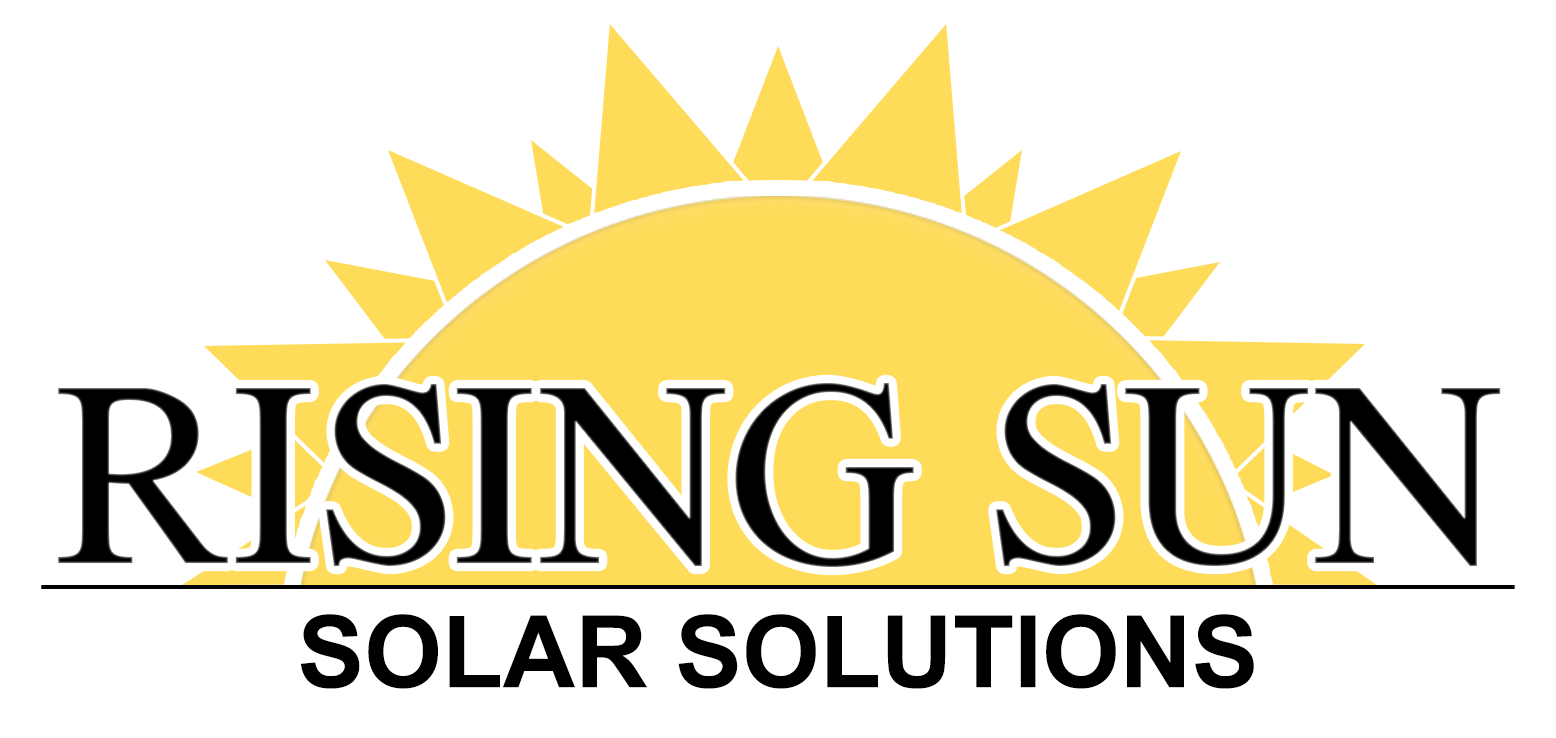Did you know that one office building uses about the same amount of energy as 16 houses?
Even if you own a small- to medium-sized business and don’t operate an entire building, your electricity bill isn’t cheap (as I’m sure you know.)
This expense might seem unavoidable. You assume that utilities are part of your operating costs and that they can’t be cut by much—no matter how often you conserve energy.
However, the answer to your energy and budget woes doesn’t lie in consumption. Switching your source of energy is the only way to drastically reduce your operational costs—and it starts with a simple investment in solar.
Here are four ways that commercial solar panels can save your business money.
1. Reduce Energy Bills
The most immediate financial benefit of installing commercial solar panels is the substantial reduction in energy bills.
Depending on your type of business, your energy demands may be high from production machinery. Your business hours will also determine the amount of power you use, creating peak hours when you use most of your electricity. This translates into hefty monthly electricity costs that become part of your operational budget.
Solar panels generate electricity from sunlight, providing a free and inexhaustible energy source. Once your system is installed, you can expect a significant decrease in your reliance on grid electricity and, on average, reduce your utility bill by 75%.
The best part about solar for business is that it provides excess energy during peak hours which most often occurs during daylight. Over time, the savings on electricity costs can be substantial, often recouping the initial investment in solar panels within a few years.
2. Offset Production Costs
For businesses involved in manufacturing or other energy-intensive production processes, energy costs constitute a significant portion of overall expenses. By integrating solar panels into your energy mix, you can directly offset these operational costs.
Solar energy provides a stable and predictable source of power, which can be particularly beneficial in managing financial budgets.
With a typical business saving about $1,400 a month using solar power, businesses can redirect funds to other critical areas of production, such as upgrading equipment, increasing capacity, or investing in research and development. This not only helps in maintaining competitive pricing but also enhances the quality and efficiency of your production processes. Over time, the reduced dependency on external power sources can result in substantial savings and even improve sales through improved efficiency.
The stability provided by solar energy can lead to more accurate financial forecasting and planning, allowing your business to allocate resources more effectively. The long-term financial benefits of offsetting production costs with solar energy improve your overall cost structure and profitability.
3. Revenue Generation through Net Metering
Another significant way that commercial solar panels can save your business money is through net metering. This solar incentive allows businesses to sell excess electricity generated by their solar panels back to the grid. When your solar panels produce more electricity than your business consumes, the surplus energy is fed into the power grid, and you receive credits on your electricity bill.
These credits can be used to offset the cost of grid electricity when your solar panels are not producing enough power, such as during nighttime or cloudy days. In some cases, if your solar energy system consistently generates more electricity than your business consumes, you may receive payments from your utility company.
Net metering effectively turns your business into a mini power plant, generating revenue from the excess electricity produced. This additional income stream can further enhance the financial benefits of solar energy, contributing to significant long-term savings.
4. Tax Credits and Financial Incentives
Governments everywhere are encouraging businesses to adopt renewable energy through various financial incentives. In many regions, businesses that install solar panels can benefit from a commercial solar tax credit as well as grants and rebates. These incentives can offset the initial commercial solar panel price, making the investment more affordable and profitable.
For instance, in the United States, the Federal Investment Tax Credit allows businesses to deduct a portion of the cost of installing a solar energy system from their federal taxes. Many states also offer additional incentives, such as cash rebates, property tax exemptions, and performance-based incentives.
These financial incentives not only reduce the upfront costs but also improve the overall return on investment for solar energy systems. By taking advantage of these programs, businesses can shorten the payback period and start enjoying the financial benefits of solar energy sooner.
Hiring a Commercial Solar Panel Installer
Investing in commercial solar panels is a smart financial decision for businesses looking to reduce operating costs and improve overall efficiency. However, understanding your energy needs is necessary to fully equip your business with the most effective solar unit.
By hiring a commercial solar installer like Rising Sun Solar Solutions, you can be sure that every step is taken to design your solar unit to fit your energy requirements. This is done by analyzing roof space and angles, determining the right number of solar panels, and calculating your energy usage while forecasting for future expansion.
Take the first step to save your business money by contacting us today for a free site assessment.


